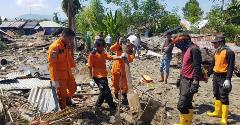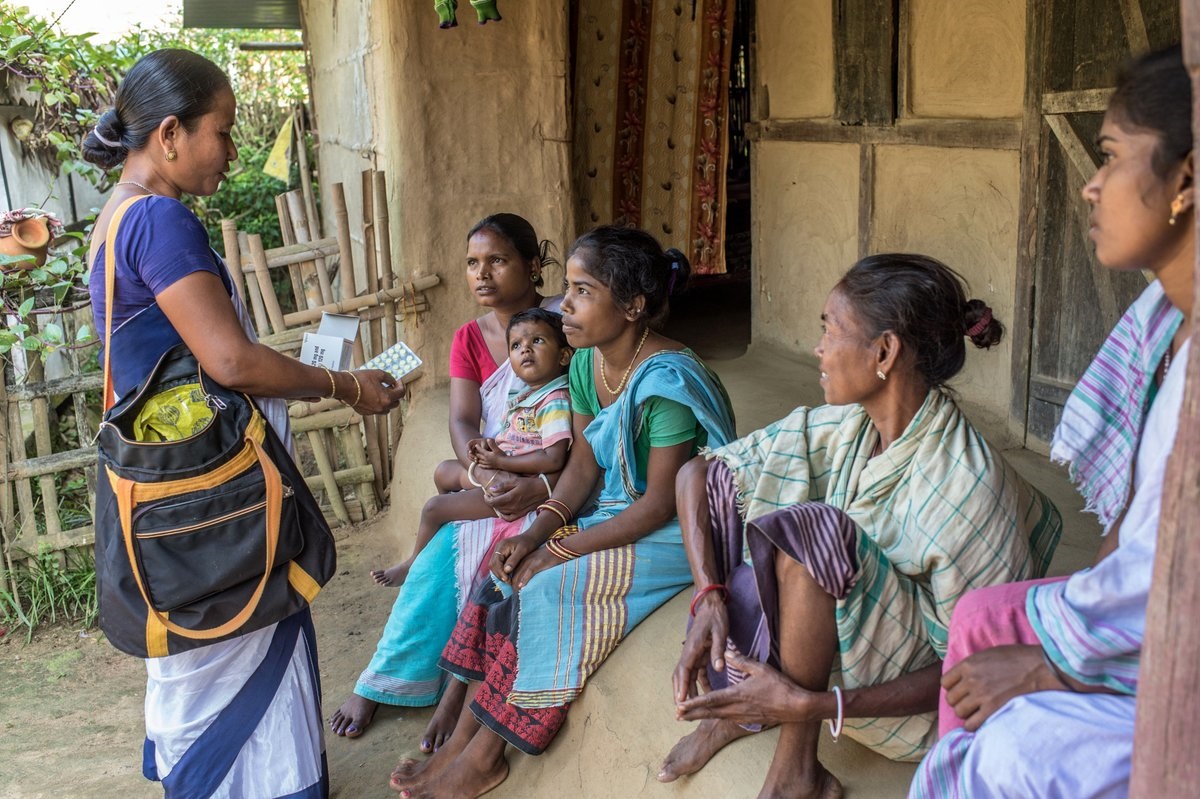Immunization is widely recognized as one of the scientific innovations with the greatest impact, and a cost-effective public health intervention that protects communities against infectious diseases. Immunization helps everyone to pursue lives well lived. In this context, “Long life for all” is the theme of this year’s World Immunization Week. This theme highlights the importance of immunization and how it saves millions of lives from several diseases, enabling all to lead healthy and fulfilling lives.
Across the WHO South-East Asia Region, significant progress has been made in immunization in recent years. The Region achieved dramatic declines in the prevalence rates of what were considered highly endemic diseases, and has even eliminated some of them. In 2019, an estimated 91% of all infants in the South-East Asia Region had received three doses of the diphtheria−pertussis−tetanus (DTP3)-containing vaccine compared with 78% in 2009. This is the highest-ever childhood immunization coverage achieved in the Region. As a result, the number of children in the Region who were unvaccinated or under-vaccinated declined to 3.3 million in 2019 from 8.2 million in 2009.
However, even in countries with well-performing national immunization programmes, there remain pockets of unreached or hard-to-reach populations for whom special efforts are needed. The COVID-19 pandemic severely affected immunization services globally; countries in the South-East Asia Region were no exception. Disruptions during the pandemic threatened to reverse the major gains that had been achieved through regional vaccine initiatives in recent years. In 2020, the number of unvaccinated or under-vaccinated children increased to 4.9 million, leaving them vulnerable to several vaccine-preventable diseases.
To counter this consequence of the COVID-19 pandemic, several initiatives were taken by Member States of the South-East Asia Region to bring childhood vaccination programmes on track. These innovative interventions could take place because of the past investments made to strengthen immunization systems in the Region. The developed and efficient immunization systems also supported the unprecedented roll out and scaling up of the COVID-19 vaccination campaign in the Region. The first COVID-19 vaccine dose was administered in the Region, on 13 January 2021 and more than 2.7 billion doses of vaccines have been administered since then. Nearly 70% of the population of the Region have received at least one dose of the COVID-19 vaccine, while three of every five individuals have completed the primary series of vaccination against the disease.
Amidst efforts to control the COVID-19 pandemic, countries were also working to revive and resume childhood immunization services. Member States with stronger health and immunization systems have been able to build back better on their immunization services and have not only reached pre-COVID-19 levels of childhood immunization coverage but also closed the immunization gaps for vaccine-preventable diseases that had emerged during the start of the pandemic.
Service disruption was minimized or mitigated in countries through timely guidance to the immunization programmes at national and subnational level. Alternative strategies for conducting fixed and outreach vaccination sessions for childhood immunization were developed and implemented in addition to the deployment of innovative approaches for identifying and vaccinating children who missed their doses when COVID-19 transmission was at its peak. Communication strategies were revised, infection prevention and control measures bolstered at vaccination sites and real-time monitoring of coverage institutionalized at national and subnational levels. Several mass vaccination campaigns against polio, measles and rubella that were temporarily halted or postponed in early 2020 were resumed later in the year or early in 2021. Several countries in the Region also introduced new vaccines to increase the gamut of protection from vaccine-preventable diseases.
As a result of these innovative and proactive efforts by countries to ‘build back better’, the Region continues to remain polio-free, and maintain its maternal and neonatal tetanus elimination status. Measles elimination status has been sustained in five countries and rubella elimination in two. However, despite these successes there must be no room for complacency. The risks of outbreaks of vaccine-preventable diseases have increased, and it remains critical that countries plug all remaining immunization gaps at the earliest.
WHO is committed to take all actions needed to ensure that the Region is safe from vaccine-preventable diseases. The Immunization Agenda 2030 and the Strategic Framework for the South-East Asia Regional Vaccine Action Plan 2022−2030 provide a pragmatic and evidence-based roadmap to support countries to ‘build back better’ their vaccine systems and processes. We must act now to protect immunization services while we continue to respond to the COVID-19 pandemic, to further minimize disease outbreaks and loss of life. At the same time, we must plan and overcome the challenges posed by population growth, conflict, political instability, migration and environmental disruptions to immunization performance.
We need to sustain the gains, accelerate the progress, and innovate to build back the immunization programmes. This can be achieved by systematic efforts in four directions: first, by maximizing reach; second, efficiently managing the programmes; third, by mobilizing people; and finally through careful monitoring of progress. Key actions that countries are expected to take include facilitating urgent catch-up vaccination programmes in places where services were disrupted, ensuring the continuity of strong supply chains, maintaining disease surveillance, and ensuring availability of trained health workers.
Caregivers should also ensure that they continue to vaccinate their children in line with national policies. While doing so, rights-based, gender-transformative approaches to enhance accountability and increase demand should be at the centre of the immunization programme that ‘leaves no one behind unprotected’ from vaccine preventable diseases. During this World Immunization Week and beyond, wherever possible, we must make it known that vaccination is a core human right that must be respected, protected and fulfilled to achieve “Long life for all”.







